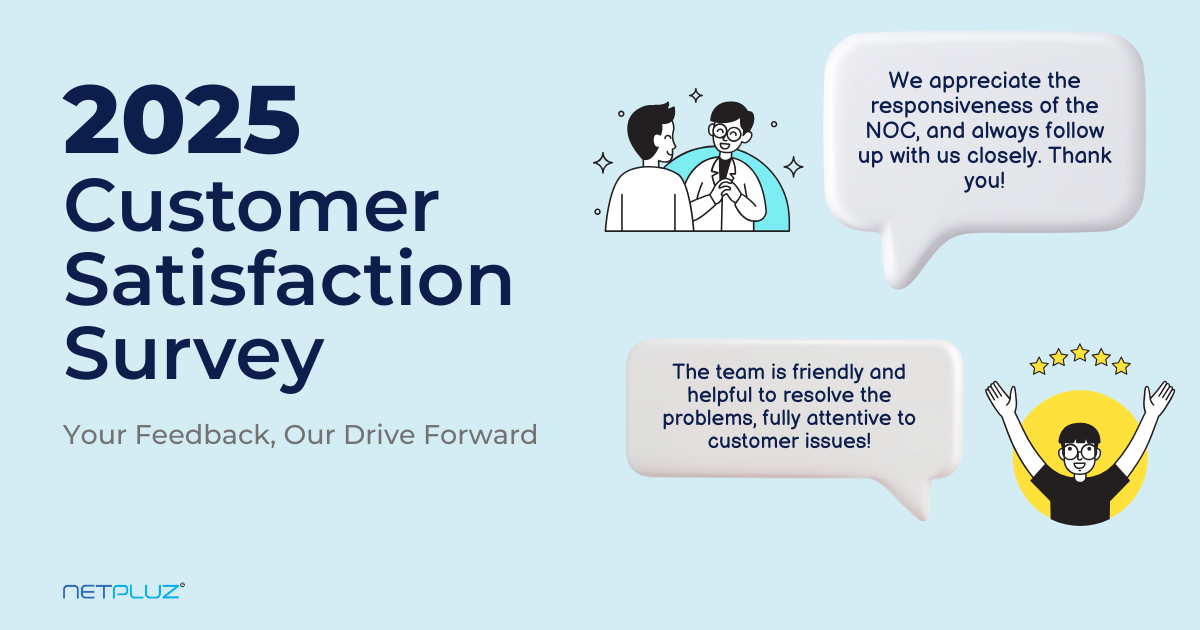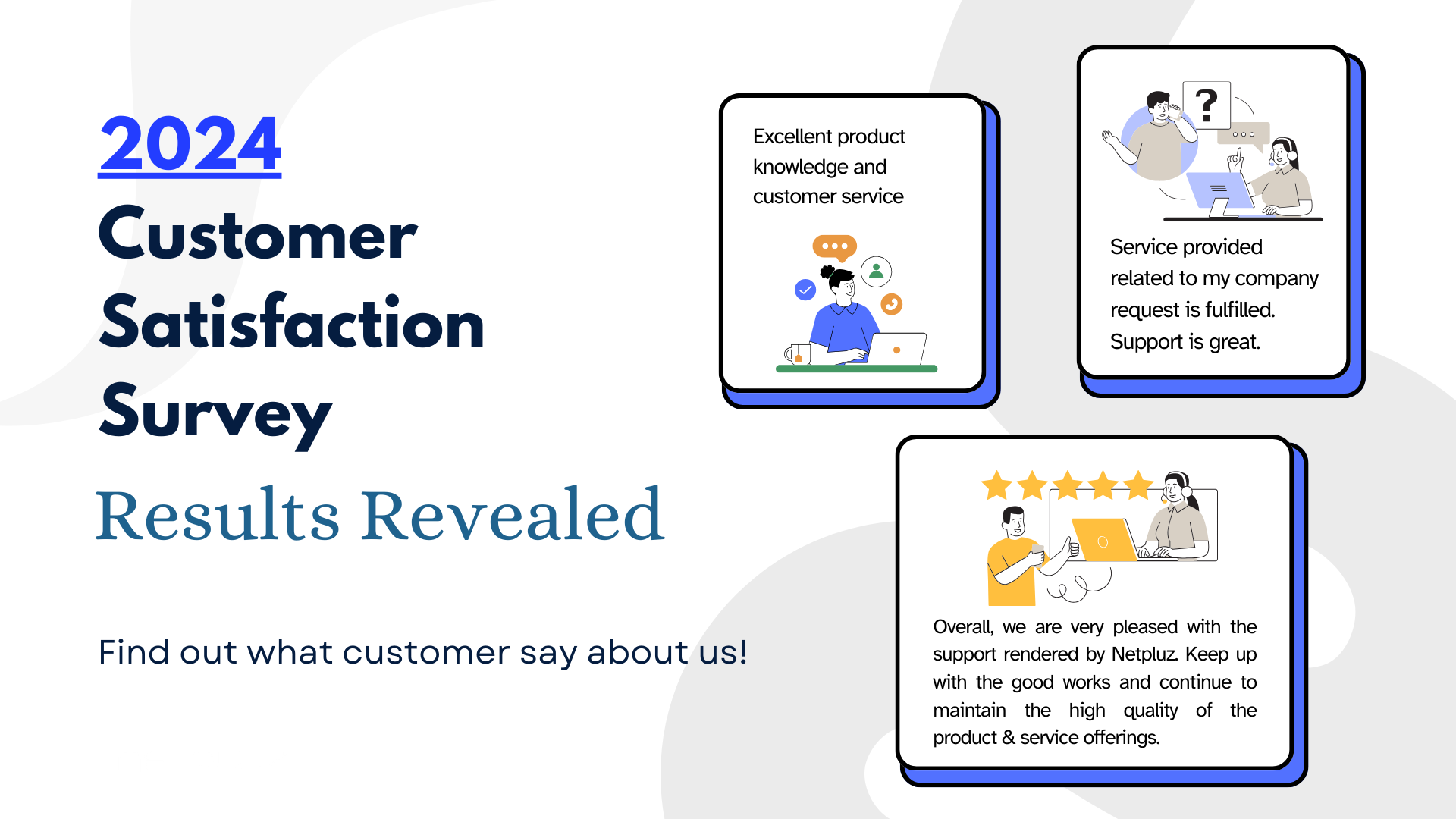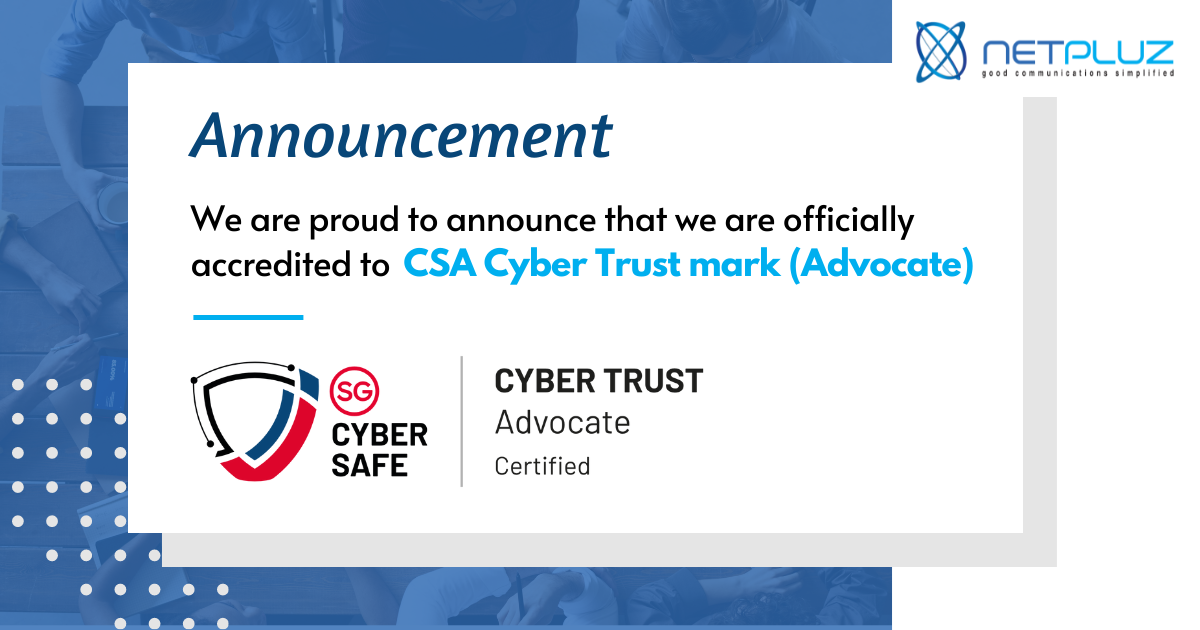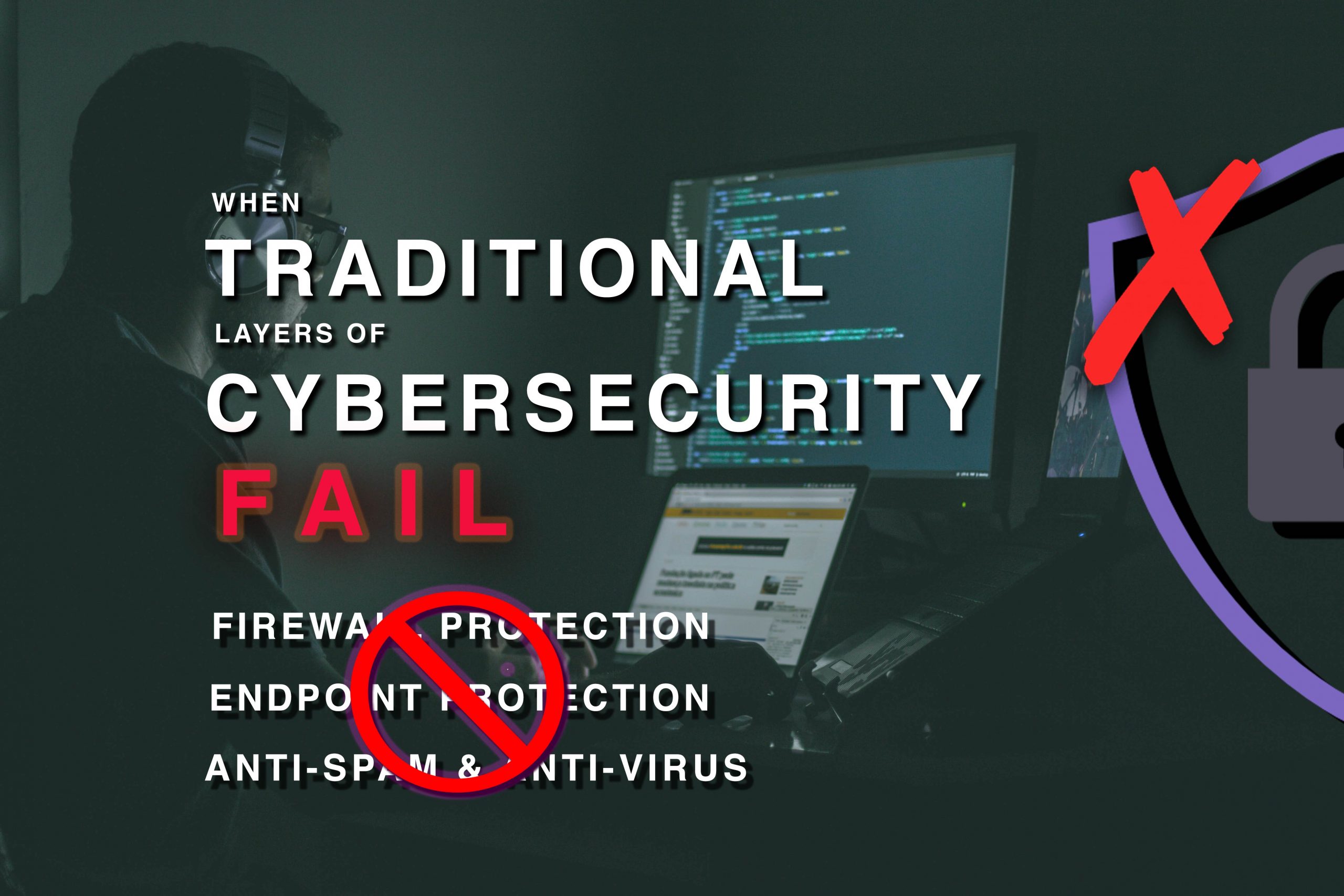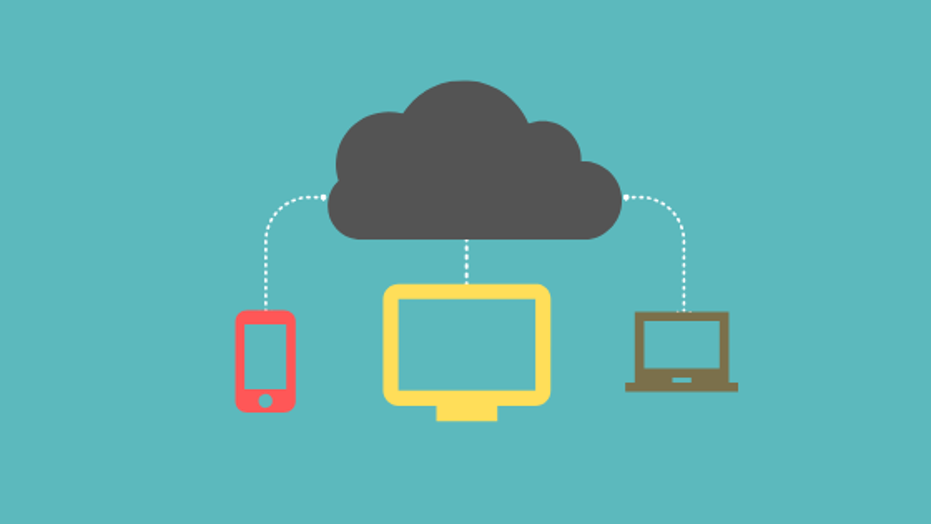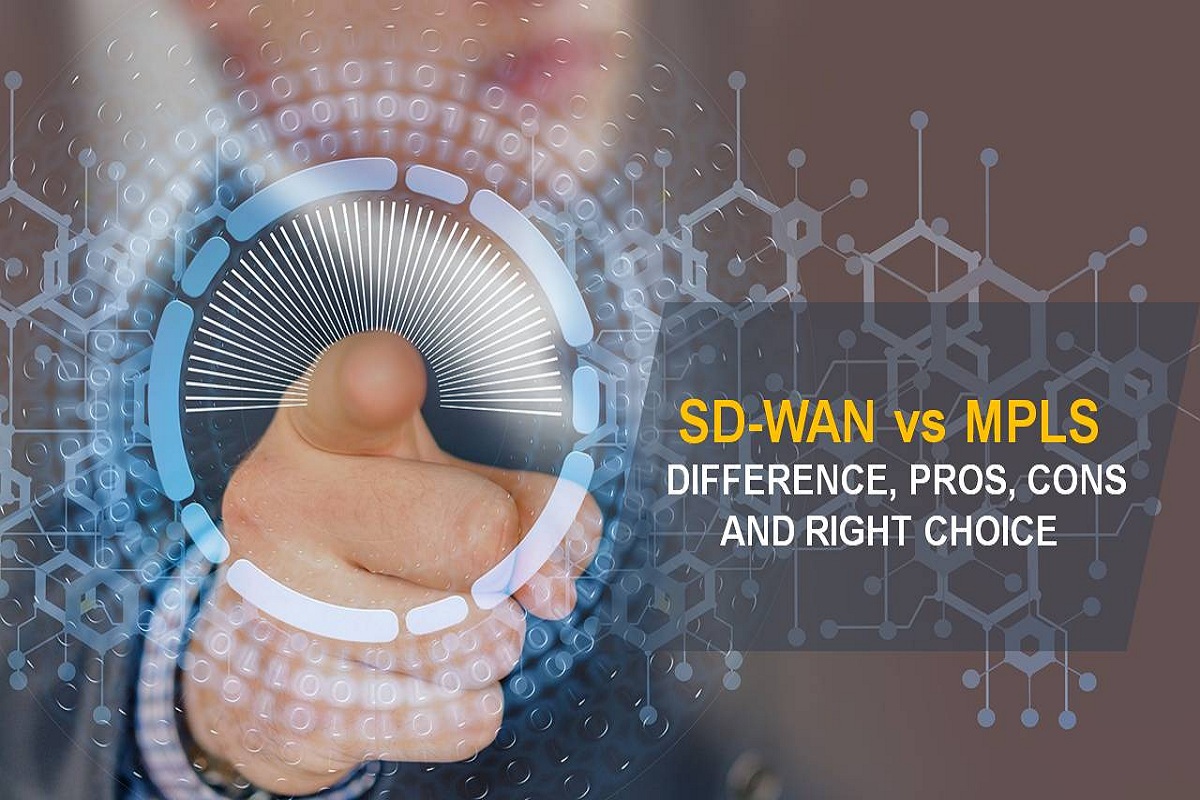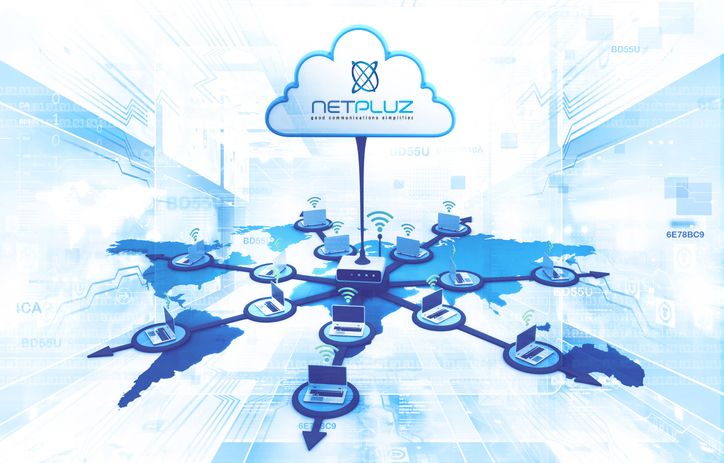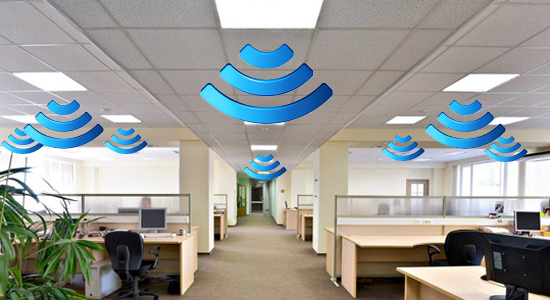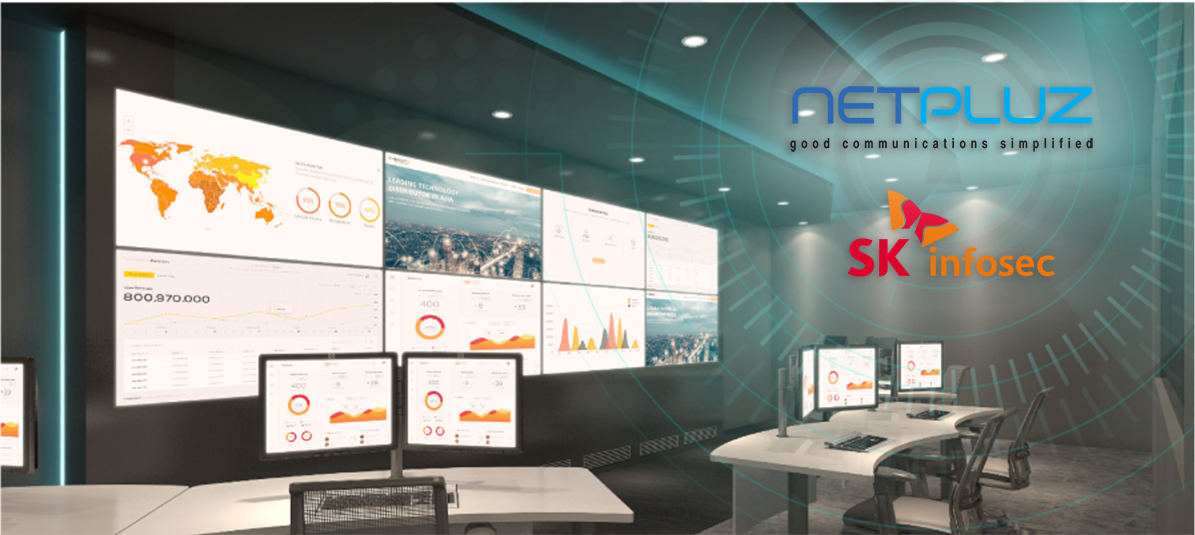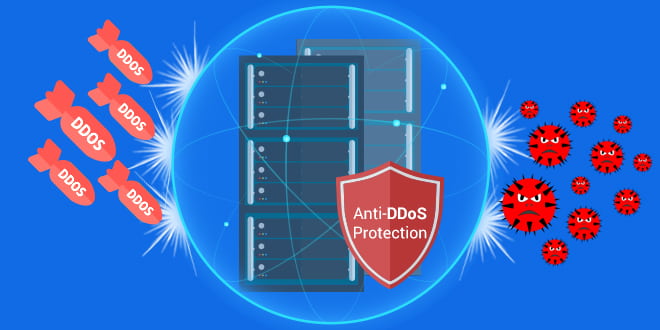With the current outbreak of Coronavirus (2019-nCoV), officially named “Novel Coronavirus Pneumonia” or NCP by Chinese Health Authorities in China, businesses in the region have started to relook at their Business Continuity Plan (BCP) on how to effectively maintain business operation where physical contact between employees or individuals is being restricted to a high degree. Enterprise Singapore, supported by Singapore Business Federation has published a comprehensive Guide on Business Continuity Planning for 2019 Novel Coronavirus.
The gathering of a large group of employees in offices is now being avoided as much as possible, with companies instructing certain percentage of its employees to work away from the office or from home as much as possible to reduce the chance of infection risks in the office space.
In short, the standard business operations using the traditional mindset of mandating all staff to report to the office might now be a risky decision, in terms of risk of infection. However, this is highly dependent on the nature of business – such as operators for heavy machinery are still required to report to work, or telemarketers only requiring a laptop and internet to work. The reliance on digital communication channel is now critical as this is something that the current coronavirus cannot take advantage of. And NO, I’m talking about the actual infection and not cybercriminals taking this opportunity for email phishing or creating malware in the name this outbreak.
If you are one of many businesses that have not put in place a robust Business Continuity Plan (BCP) to mitigate current risks, now is the time to relook at your business operations, processes and infrastructure and do something about it. The authorities have mentioned that it could take months before this outbreak is over. They have also mentioned that the coronavirus is more infectious than Severe Acute Respiratory Syndrome (SARS) that was discovered and recognised in February 2003, however, Coronavirus fatality rate is lesser, according to the authorities.
Businesses should put the focus on considerations on the short-term situation where employees may be restricted to work outside of the office as much as possible. Businesses will need to rely on the current digital infrastructure, or even look into new solutions to support the sudden surge of digital communication requirements.
For companies with robust BCP in place, working remotely from home may not be a problem. In Netpluz, we allow our employees to apply for telecommuting, or work from home in case a need arises. Netpluz utilises the Microsoft O365 platform where our employees are able to conduct their day to day operations, such as conferencing, file-sharing or even work together on a single document. The platform enables our employees to maintain constant contact with each other via this platform. CRM & ERP platforms are accessible through Virtual Private Network (VPN). Sensitive data are being encrypted before being transmitted between employees’ laptop remotely and servers in Netpluz private cloud.
Video conferencing between employees, particularly the usual weekly meetings on business operations updates, shown no issues as Netpluz infrastructure is robust and highly available. Kudos to the engineering team and their experiences.
For customer-facing staff, such as the sales team, the inability to meet will not be the main factor that affects operations. The sales team may consider inviting their customers/prospects to meet through video conferencing with Microsoft Teams on Microsoft O365 platform.
For companies who are not well-prepared, such as not utilizing Microsoft O365 or similar platform and only relying on the traditional communication channel such as Whatsapp and traditional telephone, the predictable outcome would be employees not being able to work productively.
The following are some recommendations for businesses wanting to ensure business continuity:
- Consider categorising your employees in at least 2 teams (Team A & Team B), and avoiding physical interactions between the 2 teams.
Recommendation: Have at least a team to work remotely from home. Ensure that either team will be able to take on the role of the other team, should the need arises.
- Enabling your IT department/staff to deal with the sudden surge of connectivity issue, as more and more employees may be required to work from home.
Recommendation: Understand your bandwidth usage/utilization and upgrade to a higher bandwidth if necessary.
- File servers are hosted on-premise in the office location.
Recommendation: With the mobile workforce, a simple Virtual Private Network (VPN) connectivity is the basic requirement to access the file servers in the private network. Do contact us if you need VPN setup or even consultancy on your current infrastructure to support this feature.
- Ensure your employees are able to work from anywhere such as from home. Many SMEs, especially smaller companies have yet to collaborate digitally, as most may still prefer the in-person face to face meeting.
Recommendation: Consider working on Microsoft O365 and collaborate online with Microsoft Teams. Teams can be installed on multiple devices and employees can also work on their mobile phones on the go.
Netpluz is a Microsoft SPLA partner and Cloud Solution Provider.

- Ensure that all employees who work remotely do have the communication channel such as mobile phone to be contacted or to contact their customers or suppliers.
Recommendation: Ensure that employees desk phones are properly set up to ensure call forwarding. A solution such as MobileRoam ensures that employees are able to communicate with parties more productively. This service is recommended for employees that might be facing limited mobile plan subscribed. Businesses may also consider Cloud PBX and IP-Phones should the nature of the business requires high volume call traffics.
- Ensure that all employees’ endpoint such as laptops is installed with endpoint protection.
Recommendation: With employees working remotely and accessing the internet publicly, there will always be cyber risks of malware. To ensure that endpoints are properly secured with antivirus and anti-malware, Netpluz recommends Sophos Endpoint Protection such as Intercept X Advanced with EDR and MTR.
- All endpoints should have a proper backup solution in place.
Recommendation: As employees will move around to work remotely, there will always be a chance that the endpoint they work with will be stolen, lost or even data corruption. Having a proper endpoint backup solution such as Druva InSync ensures proper data protection and governance in this critical period.
- Working from home is not an option due to the nature of business, e.g. Financial or Sensitive Data Handling.
Recommendation: In such a scenario, businesses may consider splitting their team B onto a secondary work area, similar to business Work Area Recovery (WAR), which is also covered under a comprehensive BCP plan. Such secondary workspace or Work Area Recovery solutions include complete office facilities and equipment such as PCs, telephone systems, facsimile, photocopier, manager rooms, meeting rooms and general office areas to which our customers can quickly relocate key personnel to the recovery site and resume business as soon as possible. Contact Netpluz today to find out more, from cost-effective solution to a full-fledged WAR room.
- Businesses to relook at existing or even consider building a Business Continuity Plan (BCP).
Recommendation: As IT landscapes are getting more complex with the subscription of multiple SaaS solutions or even on-prem solutions, devising a comprehensive and robust business continuity plan may require the guidance or advisory from a managed communication service provider who has decades of experiences. Netpluz has been offering advisories in terms of BCP on IT infrastructure.
The above recommendations are some simple guidelines to enable your employees to continue to work remotely if required while waiting for the coronavirus outbreak to subside.
Solutions such as collaboration platform Microsoft Teams on O365 creates the modern workspace, where employees can collaborate without the need to be physically in a specific office. Companies that have proper BCP in place would have a competitive advantage in this crisis period.
For businesses who finally understands the importance of digital communication platforms and in need of assistance, Netpluz can advise, propose, implement and manage an end-to-end robust solution. Please contact contact@netpluz.asia to set up an appointment to discuss how Netpluz can support you in communication services.
Author: Rueburn Liang
STABILITY OR SECURITY: MAKE THE RIGHT CHOICE BETWEEN STATIC IP AND DYNAMIC IP
Business Internet Connectivity
It has become common for businesses like yours to be bombarded with broadband packages from various Internet Service Providers (ISP). Customarily, you will have to make a decision in selecting either a Static IP vs. Dynamic IP (Internet Protocol) business broadband for your internet access.
In spite of your company’s size and scope, you need to determine what the most pragmatic approach should be in selecting your company’s IP. Should it be Dynamic IP or Static IP? This blog will provide you with all the know-how regarding your IP selection so that you can make a well-informed and clear decision.
Static and Dynamic IP Explained
By definition of the words, Static and Dynamic imply something that is, respectively, fixed or constantly changing.
A Static IP will be configured manually by your ISP. They will assign a permanent IP address to a particular device you want to connect so that your devices will use the same IP address when connecting to the Internet. This assigned address remains unchanged until your business has deactivated the device or changed the overall framework of your network.
On the other hand, Dynamic IP will not be configured manually by your ISP. Instead, whenever your device is restarted, a new IP address will be assigned by your ISP’s Dynamic Host Configuration Protocol (DHCP) servers. Your device will sort of “lease” an IP address to get connected. This means that temporary IP address assigned by the DHCP servers will periodically change when each device connects to the internet. 1
Here’s an easier illustration to see how a Static and Dynamic IP would typically operate:
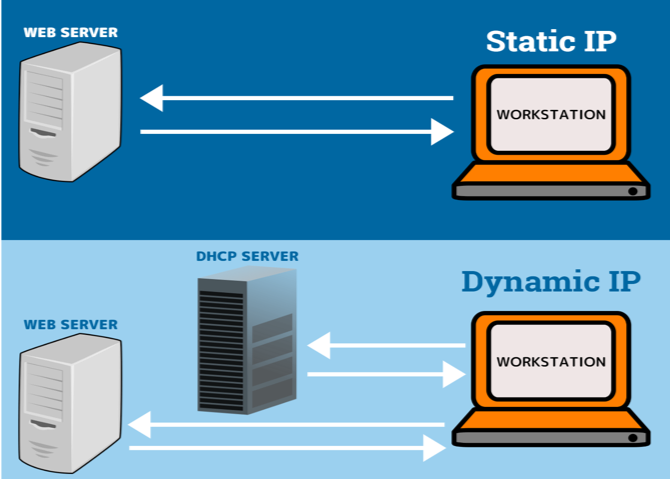
What are the differences?
Both Static and Dynamic IP will eventually provide you with an IP address to enable your device to communicate with others over an IP-based network. So you might be wondering, what are their differences? To give you a more comparative analysis, here are the 5 key components that differentiate Static and Dynamic IP.
|
|
Static IP |
Dynamic IP |
|
IP address: |
Does not change – Permanent IP address |
Changes Dynamically – Temporary IP Address |
|
Assignation: |
Assigned by the Network Administrator |
Assigned by the DHCP Server |
|
Configuration: |
Configured Manually |
Configured Automatically |
|
Sharing: |
IP addresses cannot be shared or used by any other device |
IP addresses can be shared |
|
Conventionally used by: |
Financial institutions and large corporations. – Used for dedicated servers. |
Private sector and residential areas – Used for connecting large network to the internet |
When should you opt for Static or Dynamic IP?
Google has stated that most users do not require static IP addresses in general.2 Dynamic IP is known to be the more popular option as they are undemanding and cheaper to deploy.3
Does this mean that Dynamic IP is the way to go? Well, not really. In fact, businesses would be more suited for a Static IP than residences. A Static IP will matter more if your external devices or websites need to remember your IP address.
Also, it is worth noting that internet connectivity can vary based on the nature and needs of your business. The benefits of Static and Dynamic IP that we share in this blog, will equip you with vital information in making an informed decision solely based on the benefits that your company could reap according to your business needs.
Opting for Static IP
According to Frontier Business there are three predominant reasons why your business should opt for a static IP.4 This is typically when your business:
- Hosts servers or websites – Including mail, File Transfer Protocol (FTP) and Virtual Private Network (VPN) servers
- Utilizes Voice over Internet Protocol (VoIP) or other digital voice services.
- Often permit employees to work remotely.
Although all the businesses do not operate based on the 3 points mentioned above, Static IP could still be important to your business.
To allow you to identify if it will suit your company’s internet connectivity needs, here are the 3 key benefits that Static IP will bring to the table:5&6
- Better Stability
- Faster Data Exchange
- Convenient remote access
1) Improved Stability
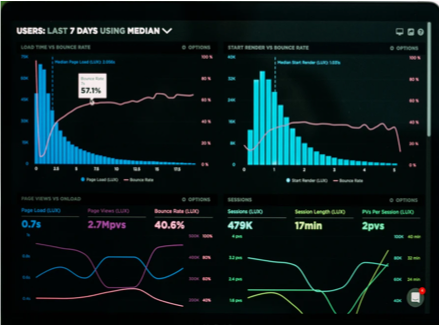
As we have previously mentioned, a Static IP address will never change. Which is why it is known to have a more stable Internet. If your IP address were to change on regular intervals, let’s say every few hours, this could eventually cause a lapse in your internet connection. Furthermore, your devices might also have trouble reconnecting to the Internet given its new IP address.7
This is when a Static IP comes in handy. If your business relies on Voice-over phone systems (like VoIP) and applications that require broadband services to communicate, Static IP will deliver a more superior connection that is reliable.
2) Faster Data Exchange

If your business requires downloading and retrieving files at breakneck speed, the Static is the ideal IP to have8 because static IP addresses provide you with faster upload and download speeds.
Considering its inherent reliability on the internet, file transfers are easy and reliable, and data can be sent and received promptly.
3) Convenient Remote access

The extensive advancement in networking technology has made it easier than ever for employees to work from home. Your employees just need to connect their devices to your IP address to access their devices remotely at any place, anytime. This also includes your VPN or other remote access programs as they remember your static IP address.
Opting for Dynamic IP
Since we understand the nature of Static IP, under which circumstances do we need to select Dynamic IP? It is relatively simple decision to make as long as you have the company’s desired goals on your mind. If you don’t use or plan to use any of the above technology or processes, a Dynamic IP for your business internet would be the way to go. Just like the Static, Dynamic will also have its own inherent set of benefits.
Here are the 3 main benefits that a Dynamic IP will bring to your business if you were to opt for it:5&6
● Better Security
● Lower Cost
● Unlimited IP addressing
Improved Security

As we have stated earlier, Dynamic IP address never remains the same. The address changes on each and every session when a device connects to the internet.
The advantage of Dynamic IP is that it will make the process harder for a potential cyber attacker to find where exactly you are situated in the network. This mitigates the cybersecurity risks by letting hackers look elsewhere instead of targeting your network, software and hardware.
You can also add an additional layer of security by masking your network address with a VPN.
Lower Cost

We understand that investing more than it requires on your internet needs is the last thing you want to do. The good news is that your ISP does not incur additional fees when you opt for a Dynamic IP address
Well, why does your ISP charge you a lower price?
Typically, your ISP’s DHCP server will assign an available IP address from a pool of reusable IP addresses to your device.9 Since your ISP would not have to purchase these IP addresses to “reserve” a particular address in the network, the cost will be reduced.
Unlimited IP Addressing

Dynamic IP will render unlimited IP addresses as it allows you to reuse un-utilized IP addresses. If you own a business that requires changing of devices or installing new ones occasionally, you may need to pay more attention to the choices you would make.
If you were to connect a device to your network, you do not need to manually disconnect the old IP address and assign a new one. This will ensure that two devices won’t be in conflict with one another on the network when using identical IP addresses.
As we have mentioned previously, the DHCP server (or router) will take care of this perpetual process automatically for you.
Summary – Static or Dynamic IP?
There are many comprehensive broadband plans available in today’s technology market. It is needless to say that selecting the most ideal internet connectivity plan plays a major role in the success of your company.
Based on the information provided in this blog, we can see both the Static and Dynamic IP bring certain benefits to your business.
Here is a quick summary of the benefits of Static IP and Dynamic IP:
|
|
Static IP |
Dynamic IP |
|
Improved Stability |
✔ |
|
|
Faster Data Exchange |
✔ |
|
|
Convenient Remote Access |
✔ |
|
|
Improved Security |
|
✔ |
|
Lower Cost |
|
✔ |
|
Unlimited IP Addressing |
|
✔ |
While Static IP provides the stability, ease of data exchange and remote access to businesses that host websites and/or internet services, Dynamic IP, on the other hand, brings about more affordability and security on the internet. These two factors needed to be taken into consideration when selecting an IP.
If you wish to find out more information on Static IP, Dynamic IP or other broadband services, you can visit us at Netpluz. Alternatively, you may book an appointment by submitting your information here for a free consultation.
Author: Shaun Nisal Peiris
References
- Iplocation.net, https://www.iplocation.net/static-vs-dynamic-ip-address.
- “Static vs. Dynamic IP Addresses.” Google Fiber Help, Google, https://support.google.com/fiber/answer/3547208?hl=en.
- “DHCP vs Static IP: What’s the Difference?” Blog, 1 Aug. 2018, https://community.fs.com/blog/dhcp-vs-static-ip-differences.html.
- “Static vs. Dynamic IP-Find Out Which Is Right for Your Business.” Frontier Business, 7 May 2019, https://business.frontier.com/blog/static-vs-dynamic-ip/.
- “Static vs Dynamic IP: What Do You Really Need?” Udemy Blog, https://blog.udemy.com/static-vs-dynamic-ip/.
- Vaughan-Nichols, Steven J. Static vs. Dynamic IP Addresses, Avast, 31 Oct. 2019, https://www.avast.com/c-static-vs-dynamic-ip-addresses#topic-3
- Kurin, James, et al. “The Advantages & Disadvantages to a Static IP Address.” Techwalla, https://www.techwalla.com/articles/the-advantages-disadvantages-to-a-static-ip-address.
- Hayes, Brooke. “Dynamic vs. Static IP Addresses.” Business.org, 13 Aug. 2019, https://www.business.org/services/internet/dynamic-vs-static-ip/.
- “Blog.” Image, https://www.pacificinternet.com/en/blogs/115-blog10.html.
Does internet work differently for businesses? Isn’t it the same as using the normal internet? Most people think it is but the answer is NO! Business internet is not just internet. In fact, the internet only makes up a branch of Business Internet.
How does business benefit from internet?
Business internet refers to how businesses use the internet to enhance the operation of their daily business. It provides both connection and connectivity for business owners to interact with each other even at long distance. Read on to find out why businesses need to know about the features of the 4 internet grades.
4 reasons to prove that Business Internet is more than just the internet.
Moving on, this article will further explore the benefits of the 4 internet grades. Business internet is made up of 4 different grades, namely Fibre broadband, GPON, Ethernet and Metro Ethernet.
1) Fibre Broadband
Fibre broadband utilises fibre optic cable that allows the transferring of data from 1 location to another in a short period of time. Fibre broadband may sound familiar to many people as it is commonly used in homes and businesses. For example, SingTel provides fibre broadband service for customers to achieve stable internet connection even at a largely exposed area. This makes it ideal also for businesses that need wide coverage.
There are several benefits of fibre broadband such as speed, strength of connectivity and latency.
- Speed
Fibre broadband is able to provide an ultra-high-speed of up to 500Mbps which enables efficiency of business operations and large data transfers that are dependent on the internet.
- Strength of connection
Strength of connection refers to the ability to have a reliable connection regardless of location in the premises, which enables smoother processes at work.
- Latency
Latency refers to delays that occur when processing data over the internet. Fibre-optic Internet helps to decrease latency issues that users may experience on cable Internet, especially when downloading, uploading of high-definition files.
2) GPON
GPON is Gigabit Passive Optical Network for short. One of GPON functions is being able to transmit Ethernet to the desired area. In addition, it is also a robust device that allows users to achieve high-speed internet connections. GPON provides the ability to combine several services onto a single fibre transport network. The benefits of using GPON include minimising cost for the infrastructure with increased and better bandwidth.
- Cost
GPON utilises passive optical splitter which covers the connection to desired areas without making use of more than one device for a large area. This results in lower costs with up to 1Gbps speed. Thus, having 1 GPON in a room is sufficient to provide stable connection for users especially for businesses with many employees.
- Infrastructure
GPON system includes an optical line terminal (OLT) that connects several optical network terminals (ONTs) together using a passive optical distribution network (ODN). It takes up lesser space to place the devices.
- Bandwidth
GPON offers an increased bandwidth at a low cost. It provides a service coverage of up to 20km that is also capable to overcome any obstacle such as twisted pair cables and decreased network nodes.
3) Ethernet
Ethernet refers to connecting computers together to a local area network or LAN. Ethernet is more common to people as it is was one of the first few traditional inventions that eased the process of providing a connection for people to use. Yet it still has many benefits for today’s business environment, including providing reliable, secure and energy efficient connectivity. For example, Ethernet actually provides faster connection as compared to Wi-Fi. This is due to its use of cables that connect to a particular TV, computer, etc.
Find out more: Watch to find out how does Ethernet work?
- Reliability
When properly set up, Ethernet provides reliable connections to devices without disrupting the user experience. It transmits connections almost immediately at speeds of up to 10 Gbps when using cabled Ethernet.
- Security
Ethernet also guarantees security as it makes it harder for the system/connection to be hacked. When users use Ethernet for their wired network, the only way for intruders to have access to the connection is by physically plugging their device to the main router which is harder to do without getting caught!
- Energy efficient
Lastly, Ethernet is a good source of connection as it utilises energy efficiently. The use of cables consumes less energy as compared to using Wi-Fi connections. This is because Ethernet has a network cable called Category 6 (Cat6) which is used as an infrastructure for network. The Cat6 cable comes in different lengths up to 100m. As a result, users enjoy greater mobility than if using shorter cables while still experiencing increased performance of up to 250 MHz.
4) Metro Ethernet
Metro Ethernet which is also referred to as Metropolitan area network, allows connectivity for a large group of users with an extended internet coverage. Many businesses use Metro Ethernet because it serves several functions such as connecting residential businesses/subscribers to the internet, allow multicast delivery which is essential for video conferencing, etc. Hence, this will greatly benefit users with improved scalability, quality of service and ease to use.
- Scalability
Metro Ethernet is compatible for speed connection that is up to 1Gbps. Users are given the choice to increase bandwidth without having to purchase or install any new equipment.
- Quality of service
Quality of service is guaranteed when using Metro Ethernet as it has a reliable Ethernet operation that is able to detect any connection failures that is experienced by users. To add on, it also supports features of the business environment such as transferring of data.
- Easy to use
Metro Ethernet make use of networks that are less complex to set up as it has a few equipment needed only. It is also easier to deal with, to maintain the network connection. As a result, it also reduces cost of equipment and ownership.
In addition, a case study done by Cisco, a well known technology company found out that the use of Metro Ethernet positively impacts businesses. Cisco has published a case study demonstrating the suitability and benefits to businesses in technical terms.
Summary
There are various articles that have been written to create awareness on the use of the various grades of business internet.
For example, SingTel, the largest mobile network provider in Singapore, also recommended business to opt for Metro Ethernet. SingTel provided a list of features that Metro Ethernet have to offer and also the benefits. It also further elaborates the types of businesses that will benefit from using Metro Ethernet. For example, for those who require a strong and committed connection to Data Centre or Cloud.
In another article, Megapath, a fusion company, supports the adoption by businesses of Ethernet. To add on, many companies/offices are still using Ethernet to provide connection as they feel that it fits their business environment.
To sum it all up, there are advantages and disadvantages when using the various grades of internet available. Depending on the nature of the business and connectivity required, there is definitely a particular internet grade that would be suitable.
You can read more on the internet grades by visiting the Netpluz website! It is a transforming Managed Communications Service Provider that helps client become more agile by simplifying their Information and Communications Technology (ICT) needs. It started in 2015 and provide a variety of IT solutions for business such as Data, Voice, Video, Mobility, Analytics and Cyber Security.
Author: Nurul Aishah Binte Khuzairi
References
· Fibre Optic Broadband Explained | MoneySuperMarket
https://www.moneysupermarket.com/broadband/fibre-optic-broadband-guide
· 11 Huge Business Benefits of Fibre Internet Connectivity
https://www.atlantech.net/blog/11-huge-business-benefits-of-fiber-internet-connectivity
· What is Metro Ethernet? | Juniper Networks
https://www.juniper.net/us/en/products-services/what-is/metro-ethernet/
· 11 Huge Business Benefits of Fibre Internet Connectivity
https://www.atlantech.net/blog/11-huge-business-benefits-of-fiber-internet-connectivity
· Benefits of the Ethernet Cable: Why You Should Be Plugging …
· Point to Point vs. GPON Fibre Internet | iTel Networks
https://itel.com/p2p-vs-gpon-fiber/
- Ethernet or GPON: Which technology is best suited for Information Transportation Systems (ITS) of the 21st Century?
· Metro Ethernet over GPON enhances business services .
- MetroEthernet – singtel.com
https://www.singtel.com/business/products-services/connectivity/domestic/ethernet/metroethernet
· GPON Technology Overview and Benefits – ctscabling.com
https://ctscabling.com/blog/gpon-technology-overview-benefits/#.XRqzOugzaM8
· Metro Ethernet – Business Benefits – telcosolutions.net
https://www.telcosolutions.net/post/metro-ethernet-business-benefits
Business internet. Not many people truly understand what it means, whereas others would just assume that it simply refers to “Internet connection”, or “Firewall”. But did you know that there is so much more to the meaning of Internet, especially when used by businesses.
From 1994 to 2000, there was the dot com bubble in the US, whereby there was a huge internet crash that resulted in a huge fluctuation in the price of goods on the internet. According to Chron, the internet continued to be a huge profitable tool for businesses as a means to market their organisation and products. There are actually many building blocks that forms the internet that businesses use on a daily basis such as Fibre Broadband, GPON, Ethernet, Metro Ethernet. Each of these internet grades would form “Business Internet” and here are some of the reasons why these building blocks would help benefit your organisation.

Fibre Broadband
Fibre Broadband is a connection that uses fibre optics to deliver data to businesses and homes. In April 2019, SP Telecom announced that it was investing “hundreds of millions” of dollars over the next five years to build an alternative to the government-backed Next Generation Nationwide Broadband Network (NGNBN).” This shows that the Singapore government understands the importance and benefits of Fibre Broadband. So you may ask, how is fibre broadband different from standard broadband? Well, it’s fairly simple and straightforward. Standard broadband uses copper wires for data transfer, whereas Fibre Broadband uses fibre optics which is much faster. Here are some benefits of Fibre Broadband according to Atlantech:
Speed
Fibre broadband speed (which ranges from 5 Mbps to 100Gbps) is many times faster than the normal internet connection, so much so that even during times when there is high usage of internet access, you wouldn’t notice any difference in internet speed! Furthermore, research conducted by Sandisk has shown that slow internet connections cost employees “one week per year of productivity.”
Latency
Latency refers to the delays that occur while processing data over an internet connection. Hence with fibre broadband, you get to enjoy
- Downloading and uploading of large sizes of data
- No interruption on international calls that require an internet connection
- Security
With fibre broadband, you can protect your data anywhere as did you know, the only way to steal information through fibre optics is to manually cut the wires that is linked to the database!
GPON
GPON, which stands for Gigabyte Passive Optical Network refers to networks that rely on optical cables to transmit and deliver information. A GPON network consists of 2 transmission equipment, which are Optical Line Termination (OLT) & Optical Network Unit (ONU). What GPON does is that it uses splitters from the network provider’s central location to “split” the network to multiple users. You might be wondering why your business might need GPON. Well nowadays, many internet service providers require a longer transmission reach, higher reliability and bandwidth. Hence, GPON is able to meet these requirements by using the OLT and ONU to
- Longer transmission distance: Covers up to 60km coverage radius
- Higher Bandwidth: GPON could be able to support the maximum transmission
In fact, GPON is getting so successful that Cisco, a multinational technology company has announced a GPON system that is part of their plan for implementing “Access Networking”. To read more about their new developments, click here.
Furthermore, GPON gives users the ability to consolidate multiple servers into a single transport network, which is the perfect solution for businesses with multiple points. Hence, instead of using separate servers which could be separated geographically, businesses could use GPON to consolidate all these servers to ensure the smoother transmission of data and the overall increase in productivity.
Ethernet
What exactly is Ethernet? As explained by LiveWire, Ethernet simply refers to technology that is commonly used in Local Area Networks (LAN), which refer to a network of electronic devices that cover a small area such as an office or your house! In fact, you are probably using Ethernet every day without even realising it! According to The Chartered Institute for IT, many network providers across the globe are looking to utilise Ethernet in their businesses to reap the benefits that come along with it.
Why should you use Ethernet as compared to your normal Wi-Fi? It’s fairly simple. For starters, the maximum speed of a typical Wi-Fi connection is 866.7Mb/s, whilst an Ethernet connection could offer up to 10Gb/s. Furthermore, as compared to Wi-Fi, which is prone to hacks as it is not entirely secure, Ethernet is much safer as all the data is transmitted through the cables that are connecting all the electronic devices together, hence the only way to actually “hack” an Ethernet connection is to physically plug the device into your router!
Therefore, switching our office or home internet connection from Wi-Fi to Ethernet would be highly recommended! For more benefits about Ethernet, you can refer to this Link to find out more!
Metro Ethernet
Metro Ethernet is basically an Ethernet technology network that covers a metropolitan area. It is mainly used for connectivity to public internet, or connectivity between businesses that are geographically located separately. The difference between metro Ethernet and Ethernet is that metro Ethernet caters towards a much bigger area, as suggested in the word “Metro”.

Benefits
- Flexibility—Supports a wide variety of services and transports.
- Reliability—Ethernet operations, administration, and maintenance (OAM) performs path discovery, detects and reports connection failures, and measures performance.
- Cost-Effectiveness/Ease of Use— The network is much easier to maintain and use, which would, in turn, lower ownership, manpower and equipment cost.
- Quality of Service (QoS)—Supports QoS features, such as classification, marking, policing, queuing, and scheduling.
- Scalability— Metro Ethernet is able to support internet speeds ranging from 1 Mbps to 10 Gbps, and it could be done without any prior instalment or purchase.
If you would like to find out more about the features, further benefits and cloud exchange networks, here’s the Link!
In Conclusion, these 4 main building blocks make up the “Business Internet” that you experience on a daily basis, whether you are at home or in your office. Understanding the benefits of GPON, Fibre Broadband, Ethernet as well as Metro Ethernet could help boost productivity in the workplace, as well as ensuring that your database is secured 24/7.
If you are looking for a company that is able to cater to all your technological needs and provide you with the benefits of “Business Internet” mentioned throughout this blog, then find out more at Netpluz.
Author: Tristan Oh Jiaxuan
References:
Netpluz Internet Connectivity for Business | Secure & Reliable Internet
https://www.netpluz.asia/services/data/managed-internet/
11 Huge Business Benefits of Fibre Internet Connectivity
https://www.atlantech.net/blog/11-huge-business-benefits-of-fibre-internet-connectivity/
What is GPON?
https://www.router-switch.com/faq/what-is-gpon.html
Ethernet LAN Explained
https://www.lifewire.com/what-is-ethernet-3426740
Insights from CableWholesale
https://www.cablewholesale.com/blog/index.php/2016/06/07/benefits-of-the-ethernet-cable-why-you-should-be-plugging-in/
What is Metro Ethernet? | Juniper Networks
https://www.juniper.net/us/en/products-services/what-is/metro-ethernet/
What is GPON (Gigabit Passive Optical Networks)? | Carritech Telecommunications
http://www.carritech.com/news/gpon-gigabit-passive-optical-networks/
What Are the Benefits of the Internet to Business?
https://smallbusiness.chron.com/benefits-internet-business-316.html



